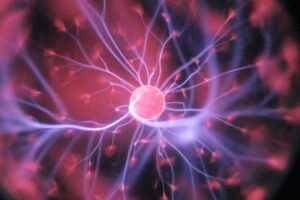
As modern science continues to explore the depths of human physiology, one compound that has emerged as a promising tool for cellular energy production and overall health optimization is nicotinamide adenine dinucleotide (NAD). In this blog post, we will dive deep into the intricacies of NAD, uncovering its vital role in various biological processes, and unveil effective strategies to boost its levels naturally. Keep reading to learn more about NAD.
An Overview of NAD
A critical coenzyme is NAD, which is found in every single cell of your body. The function of NAD is to assist cells in transforming the food we consume into the energy our bodies require to function optimally. Redox reactions involve the transfer of electrons between molecules, which is essential for energy production and various metabolic processes, including immune response, cell aging, and DNA repair.
One of the primary functions of NAD is to facilitate the production of adenosine triphosphate (ATP), often referred to as the body’s energy currency. ATP provides the necessary energy for cellular activities, such as muscle contraction, nerve impulse transmission, and protein synthesis. Without adequate levels of NAD, our cells could not generate sufficient ATP for these crucial processes.
In addition to energy production, NAD is also involved in maintaining cellular health and integrity. It plays a crucial role in regulating the activity of enzymes involved in DNA repair, ensuring that any damage to our genetic material is promptly addressed. Furthermore, NAD is a key player in aging, as it influences various molecular pathways that affect cellular longevity and lifespan.
Recent research has highlighted the significance of NAD in the immune response. It has been found to regulate the function and activation of immune cells, enhancing their ability to fight off infections and protect our bodies from potentially harmful pathogens.
The Crucial Role of NAD in Biological Processes
NAD’s role in various crucial biological processes is integral to health and well-being. One of its important functions is its involvement in cell signaling, particularly in the sirtuin-mediated pathway. Sirtuins are a group of protein enzymes that rely on NAD to function properly. These enzymes are essential for regulating various aspects of cellular health and aging and promoting inflammation and stress resistance.
The sirtuin-mediated pathway is responsible for maintaining the balance between cellular damage and repair, impacting the lifespan of cells. NAD acts as a coenzyme for sirtuins, allowing them to effectively carry out their enzymatic activities. These activities include the modification of proteins and other cellular components, which can influence gene expression, DNA repair, and metabolic processes.
Sufficient levels of NAD are essential to support the proper functioning of sirtuins and maintain cellular health. As cells age, NAD levels decrease, compromising the ability of sirtuins to carry out their essential functions. This decline in NAD levels is believed to contribute to the aging process and the development of age-related diseases. Therefore, maintaining optimal NAD levels through various strategies, such as lifestyle interventions and supplementation, is crucial for promoting cellular longevity and overall well-being.

Understanding the Depletion of NAD
The human body is continually under assault from environmental stressors, lifestyle choices, and the natural process of aging. All these factors exert stress at the molecular level, leading to DNA damage, inflammation, oxidative stress, and nutrient deficiencies. These stresses eventually deplete the levels of NAD in the body.
Chronic inflammation is another major factor that contributes to NAD depletion. As the body fights inflammation, the immune cells use up large quantities of NAD. Similarly, conditions like diabetes, obesity, and heart disease can severely deplete NAD levels, accelerating aging and disease onset.
Moreover, NAD is also utilized in cell-damaging processes like activating Poly (ADP-ribose) polymerases (PARPs), a group of enzymes involved in DNA repair. While this supports cellular repair, it also consumes and eventually depletes NAD. Consequently, maintaining ample levels of NAD becomes a double-edged sword, necessitating a balance for optimal functioning.
The Role of Diet in NAD Levels
The types of food we eat directly impact our NAD levels. Consuming a nutrient-dense, balanced diet rich in NAD-boosting foods such as fish, chicken, mushrooms, yeast, green vegetables, milk, and whole grains can aid in maintaining healthy NAD levels. These foods are rich in niacin, also known as vitamin B3, a building block of NAD. Consuming niacin-rich foods can positively impact the body’s NAD production. However, it’s essential to maintain a balanced diet and avoid nutrient deficiencies that can impact NAD synthesis.
Specific dietary strategies, like calorie restriction, intermittent fasting, and high-protein diets, have shown the potential to boost NAD levels. Such nutritional interventions can activate sirtuins, enzymes that regulate cellular aging, thus contributing to higher NAD levels.
Supplements To Boost NAD Levels
Supplementing the diet with certain NAD precursors is another strategy for increasing NAD levels in the body. These precursors can be converted into NAD more efficiently than dietary niacin, potentially boosting NAD levels.
Two of the most researched NAD precursors are nicotinamide riboside (NR) and nicotinamide mononucleotide (NMN). Both NR and NMN have shown promising results in boosting NAD levels in various studies, potentially providing anti-aging benefits, promoting cognitive health, and supporting metabolic processes.
However, as with any supplement, it’s essential to consult your healthcare professional before starting any supplementation regime. This will ensure the safe and effective use of these supplements, taking into account individual health status and nutritional needs.
Exercise To Boost NAD Levels
Research suggests that physical activity may also boost NAD levels. Exercise stimulates the conversion of NADH, a reduced form of NAD, back into NAD+, supporting the efficient energy extraction from glucose and fats, increasing the overall NAD pool in the body.
Regular moderate-intensity exercises such as walking, jogging, cycling, and swimming can have a cumulative effect over time, helping maintain healthy NAD levels. But remember, overexercise can lead to physiological stress, potentially accelerating the depletion of NAD. So, it’s crucial to strike a balance and engage in regular, moderate exercise to maintain optimal NAD levels.
Exercise has a direct relationship with sirtuin activation. Sirtuins, as discussed before, are NAD-dependent enzymes regulating cellular health. Regular physical exercise stimulates sirtuin activity, indirectly supporting NAD production and utilization in the body.
 How Sleep Impacts NAD Levels
How Sleep Impacts NAD Levels
Sleep patterns and NAD levels are closely interlinked. Sleep deprivation or irregular sleep patterns can lead to metabolic stress, consequently depleting NAD levels. When we consistently experience sleep deprivation or have irregular sleep patterns, our body undergoes metabolic stress. This stress can disrupt the normal functioning of our cells, leading to a decrease in NAD levels. As NAD is involved in important metabolic processes, such as converting food into energy, a reduction in NAD levels can impair our body’s ability to produce energy efficiently. This can result in feelings of fatigue and lethargy, affecting our daily productivity and overall quality of life.
During sleep, the body undergoes several restorative processes, many of which require NAD. For example, sirtuins are most active during sleep. Poor sleep interferes with these regenerative processes, causing NAD depletion and subsequent cellular aging.
It’s not only about diet and exercise when it comes to maintaining optimal NAD levels. Sleep quality also plays a vital role. Therefore, adopting a holistic approach encompassing diet, exercise, sleep, and potential supplementation seems the best course for maintaining healthy NAD levels.
The correlation between health and NAD levels is undeniable. While the human body naturally produces NAD, a variety of factors, including aging, stress, poor diet, and lack of exercise, can severely deplete the levels of this vital coenzyme. Adopting lifestyle habits and strategies that promote the production of NAD is crucial for optimal cellular function, overall health, and well-being.

























